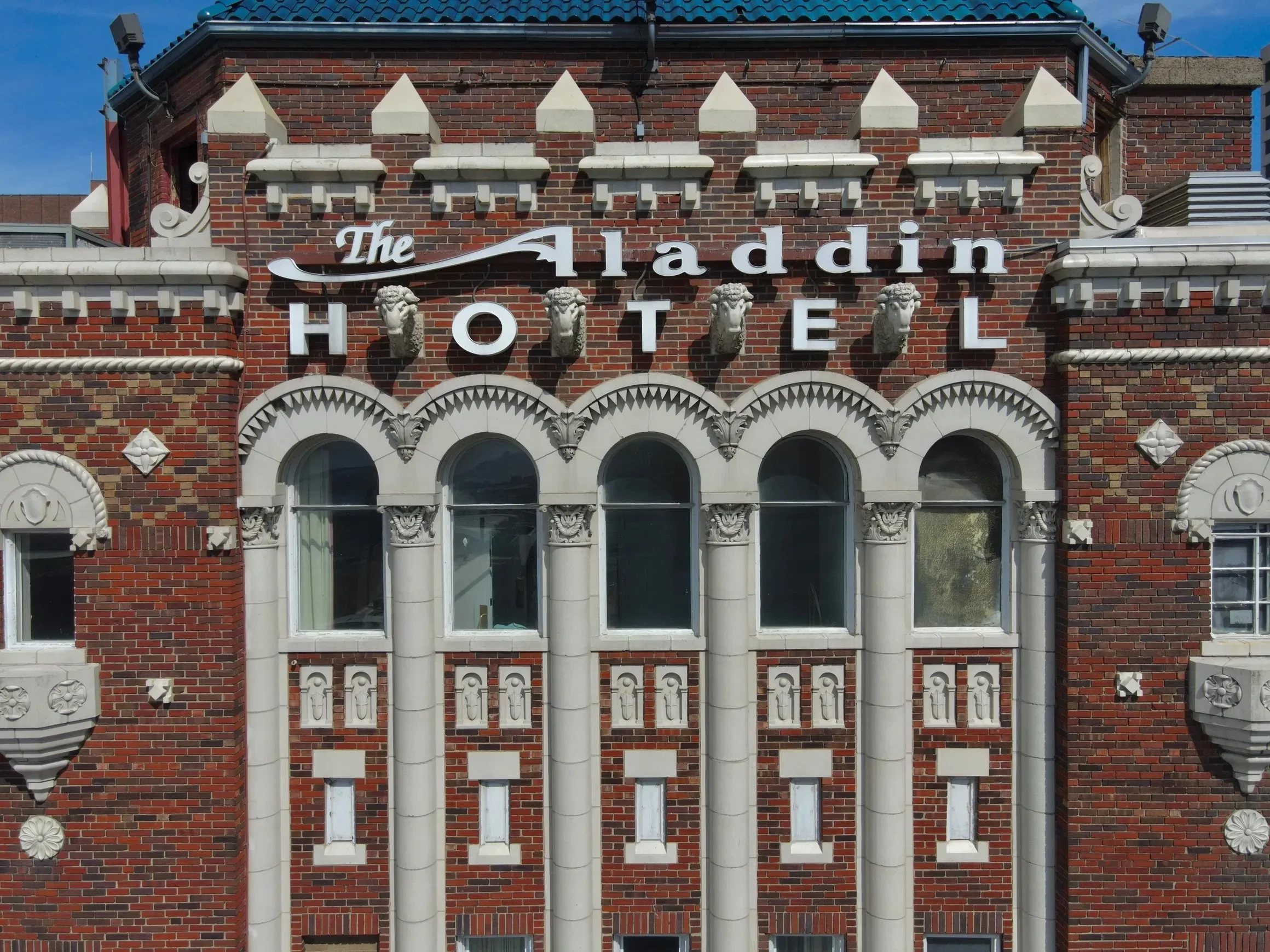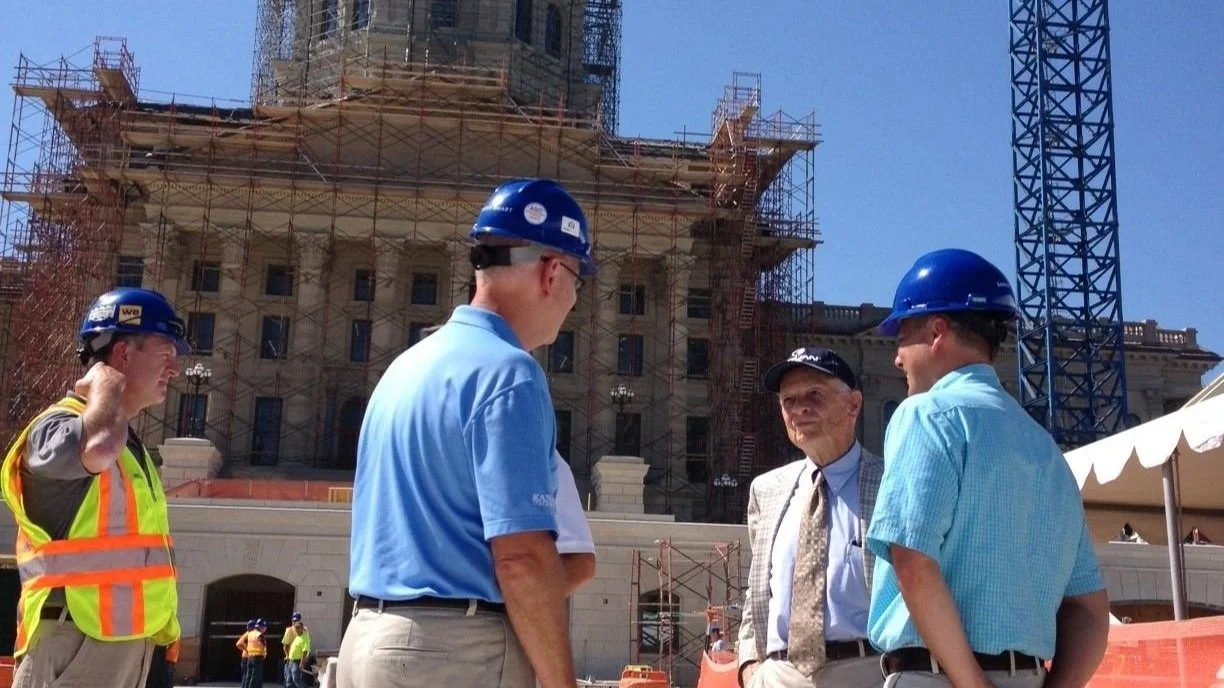In its more than 100-year history as an on-going business, Copaken Brooks has changed and enhanced the commercial real estate landscape throughout the metro area.
The company’s owners and principals, Jon Copaken, Keith Copaken, Bucky Brooks and Bill Crandall, discussed their current projects and future plans as the guest speakers at last week's monthly breakfast hosted by CCIM Kansas City.
Copaken Brooks has developed 20 million SF of properties throughout its history, but they are not just developers.
“We have five million SF currently under management. We have equity interests in most of it, not all of it. We put together partnerships. The partnerships we’re involved in own anywhere from five percent of the asset to 100 percent of the asset. . . . We serve as the developer or the manager. We arrange the financing with banks,” Keith Copaken said.
Twenty years ago, the property located at the corner of 87th Street and Renner Road in Lenexa, Kansas was merely a cornfield. The city of Lenexa acquired the land and engaged Copaken Brooks to help them master plan the development which today is Lenexa City Center.
Keith Copaken said 1.6 million SF of the property has been developed, and Copaken Brooks has been involved in the development, facilitation, brokerage and everything else related to the site. The mixed-use property is zoned for two million SF. The project has public spaces, including the Lenexa Rec Center, Lenexa City Hall, Johnson County Library – Lenexa City Center, Shawnee Mission School District Aquatic Center and Lenexa Public Market. It also boasts residential, retail and office spaces. Kiewit Corporation occupies 650,000 SF.
SmartStorage Lenexa under construction and scheduled to open before the end of the year. Photo Credit: Strickland Construction Company
Also under development from the ground up in Lenexa is SmartStorage Lenexa, a three story climate-controlled 695-unit facility, scheduled to open in December.
Hoping to replicate the success in Lenexa, the City of Independence, Missouri has engaged Copaken Brooks to redevelop its Independence Square area with mixed-use. Crandall said he anticipates the redevelopment plan, which covers approximately eight acres, to be adopted by the end of the summer. There are still several parcels to assemble.
“When we talk to municipalities, my mantra is that you’ve got to control the real estate. I tell municipalities, you’ve got to get the real estate. You’ve got to go buy land. You’ve got to go buy buildings. . . . Until you have control, you don’t have anything. . . . Nothing happens unless you start, and the city has had the will to do this thing. The city is really owning this and trying to be a cooperative partner,” Crandall said.
Copaken Brooks wants to do infill development on the site and repopulate the Square.
“There’s lots of good tenants on the Square now. . . .We want to make it a destination,” said Crandall.
Brooks said there are development opportunities at Cambridge Business Park, another Copaken Brooks property, located along the hillside where I-35 swings west into Kansas traveling from Downtown.
According to Crandall, multifamily is probably the most robust asset class that the company is chasing currently. But, the timeframe to get new projects up and running is long.
One multifamily project under development is Third and Grand, a project that has been in the works since 2018 when the Kansas City Area Transportation Authority (KCATA) issued a request for proposal. Copaken Brooks entered into a development agreement in early 2019, and after 18 amendments to that agreement, it closed on the land in February 2024.
Third and Grand has been in the works since 2018 but is expected to be completed the beginning of 2026. Image credit: Klover Architects
Copaken Brooks broke ground on the 245-unit luxury apartment building with parking in April, with completion scheduled for January 2026
“It’s on probably the best TOD [transit-oriented development] site in the city. The streetcar literally runs right in front of us on Grand Boulevard. Third Street is a major east-west bus route. We’ve got automobiles, we’ve got scooters. We’ll have EV parking inside the building as well as outside the building. . . . It’s really a spectacular location,” Crandall said.
Another planned multifamily project is 1818 Main, the land for which Copaken Brooks put under contract in 2021. It will be a 16-story structure with 147 units on 13 levels atop three levels of structured parking. Jon Copaken said they expect to begin construction in September.
“When all is said and done, it will be about a five or five and one-half year endeavor. . . but that’s about how long these things take,” he said.
Copaken Brooks is an active Downtown player. Among its holdings are 1111 Main (previously known as Town Pavilion) and 1201 Walnut. Jon Copaken said the activity on those properties is “really good” even though tenants are still trying to figure out space needs to get employees back in the office.
The company also controls the two blocks directly north of the T-Mobile Center.
“Controlling two blocks within the center of the city is kind of a rare thing,” said Jon Copaken.
Keith Copaken said Copaken Brooks as a company does placemaking.
“We make places, and we make spots that people want to go to. . . . In order to make great places, you have to have time and you have to have control,” he said.
Header image features Lenexa City Center. Image credit: Klover Architects










